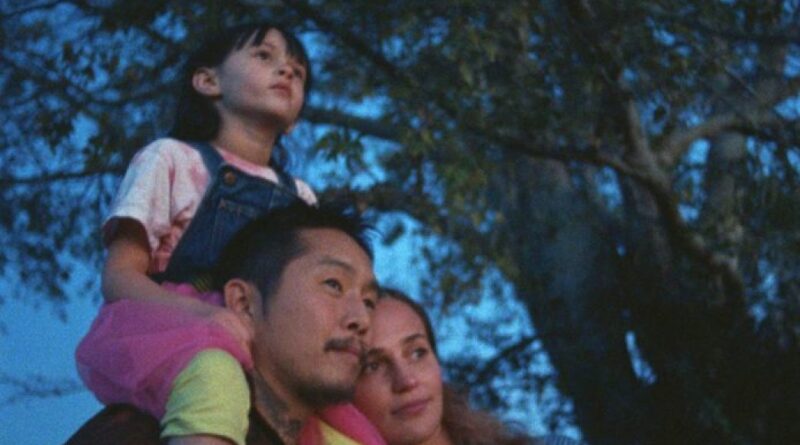An American family fights for their future in Blue Bayou
An official selection of the 2021 Cannes Film Festival from award-winning writer/director Justin Chon, Blue Bayou is the moving and timely story of a uniquely American family fighting for their future.
Antonio LeBlanc (Chon), a Korean adoptee raised in a small town in the Louisiana bayou, is married to the love of his life Kathy (Alicia Vikander) and step-dad to their beloved daughter Jessie.
Struggling to make a better life for his family, he must confront the ghosts of his past when he discovers that he could be deported from the only country he has ever called home.
Actor-turned-filmmaker Justin Chon took the Sundance Film Festival by storm in 2017 with his startling black-and-white L.A. riots drama Gook. His 2019 follow-up, Ms. Purple, was set in modern-day Koreatown and told the story of a brother and sister caring for their terminally ill father.
With his latest feature, Blue Bayou, Chon leaves behind Southern California for the balmy climbs of New Orleans and its environs to tell the compelling story of one man whose future and whose family hangs in the balance after his citizenship status is called into question.
The story is one that could be ripped from today’s headlines—it was, in fact, inspired by a series of news articles that Chon came across several years ago about adoptees from South Korea being deported from the United States after having lived their entire lives in the country.
“I read that, and it really affected me and got me very emotional—the stories just broke my heart,” says Chon, who hails from Southern California. “Growing up, I’ve been friends with a lot of Korean-American adoptees, and I always felt their experience being an American was so different to mine. I thought it was a side of the American experience that really wasn’t really shown in film.”
Chon put together a pitch—though he’d also resolved that he would write this story whether anyone in Hollywood chose to back him or not. Fortunately, Chon found excited creative partners in MACRO, who responded strongly to the young filmmaker’s vision.
“Blue Bayou is a beautiful story about a Korean-American who was raised in the South, and at 37, discovered that as an adopted child, he did not have the proper immigration papers,” says MACRO CEO Charles D. King. “It’s just a beautiful, heartfelt, tragic story around challenges that we’re facing around immigration laws and reform.
“It was important for us to tell this story because the mission for our company MACRO is to elevate the voices and to tell the stories of people of color, both domestically and globally and tell them authentically, and to tell the spectrum of those stories,” King continues.
“When Justin shared this story with us, we were just struck by it. I didn’t know that this is something that’s happening in the country, and I could only imagine that there’s a wider audience that isn’t aware of these challenges that some members of our community are facing.
“We thought that it was incredibly important to tell this story, especially right now with many of the issues that are facing our country. We saw it as a story that could show the universality of who we are and could help to build bridges and bring people together.”
As Blue Bayou took shape, the character at the heart of the emotional tale became ever clearer to Chon, as did the importance of the film’s Louisiana setting. “One thing that was very important to me as an Asian-American is how we’re portrayed in the media,” Chon says. “A big thing for me was the name Antonio—seeing an Asian-American with that name was very peculiar. I placed it in the South because I’ve never seen Asians with Southern accents treated as just very naturally a fact of life.”
Adds Chon: “I placed it in New Orleans specifically because there’s a huge enclave of Vietnamese people there, and one of my goals with this film was to have two adjacent Asian ethnicities in one film. This Korean adoptee Antonio learns what his culture could be like through this friendship with a Vietnamese woman. It’s his introduction into Asian culture. They’re countries that share a lot of similar war trauma.”
Although Chon had written, directed and starred in his previous films, he initially planned to cast an actor to play the pivotal role of Antonio. But when it came time to cast the part, he found that the character was simply too close to his heart to be portrayed by anyone else.
“The story was so important to me that I really wanted to be present to focus on the story and the filmmaking,” he says. “But I just got to a point where I’d lived with the story for so long and these people were so real to me that I started to get very nervous. I felt like if anyone was going to mess it up, I’d be the one to mess it up. I didn’t want to be in a position where if somebody didn’t quite give it the energy that I thought was necessary that I would be bummed out, you know?”
From then on, it was a matter of finding the right actors to portray the colorful cast of characters that surround Antonio on the streets of New Orleans, and the casting process began in earnest.




